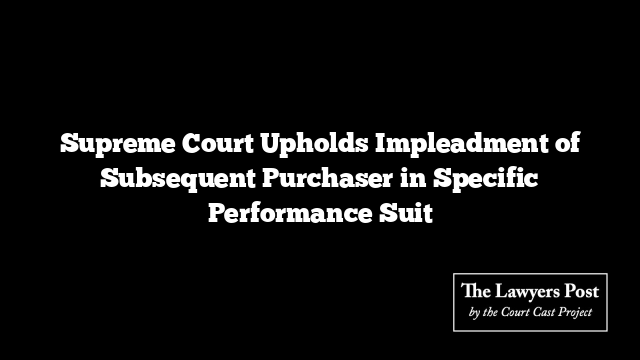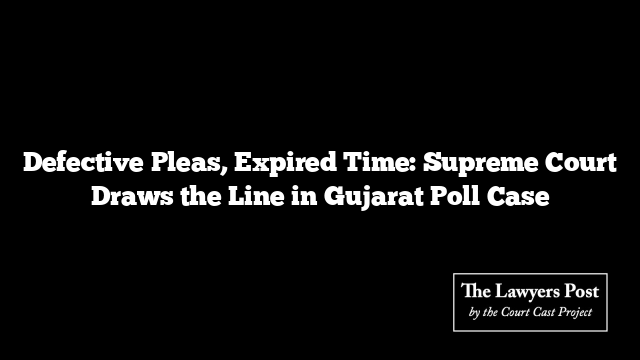In a significant ruling, the Supreme Court has clarified the position on the inclusion of a subsequent purchaser in a specific performance suit, determining that while such a party may not be a “necessary” party, they can still be considered a “proper” party if their rights are potentially impacted by the court’s decision.
The case arose from a dispute where the appellant, an outsider to the original suit, sought to be added to the case based on a registered sale deed for the property in question. His inclusion was sought on the grounds that the adjudication of the dispute could affect his title over the property.
Although the plaintiff did not object to the appellant’s impleadment, the High Court, exercising its powers under Article 227 of the Constitution, overturned the trial court’s decision to include the appellant. Dissatisfied with this outcome, the appellant approached the Supreme Court.
The bench, consisting of Justices JB Pardiwala and R Mahadevan, found merit in the appellant’s request, overturning the High Court’s decision. Justice Pardiwala, in delivering the judgment, emphasized that since the authenticity of the transaction involving the appellant was in dispute, his inclusion as a party would not harm the proceedings. Instead, it would allow the court to address all issues comprehensively.
In a notable observation, the court clarified the difference between “necessary” and “proper” parties in legal disputes. A necessary party, the Court explained, is one whose absence would prevent the court from making an effective ruling. In contrast, a proper party, while not essential to the suit, is someone whose involvement helps the court resolve the entire matter more effectively.
Drawing from the precedent in Sumtibai v. Paras Finance Co., the Supreme Court noted that a third party demonstrating a legitimate claim to the property has the right to apply for impleadment under Order 1 Rule 10(2) of the Civil Procedure Code. The Court ruled in favor of the appellant, restoring the trial court’s decision and allowing the impleadment to proceed.
This judgment underscores the Court’s focus on ensuring that all parties with a stake in the outcome of a case are given the opportunity to participate, enhancing the efficiency and fairness of the judicial process.




